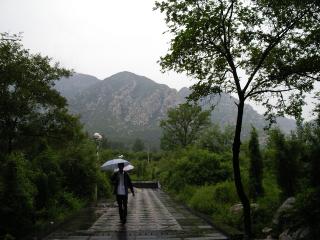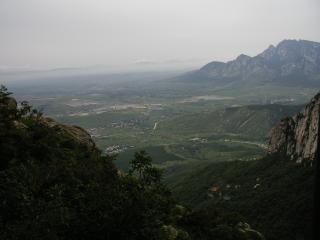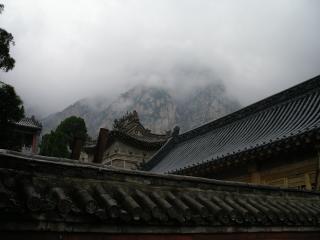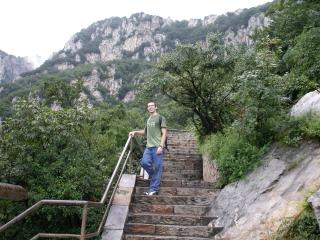




Liminal is a favorite word of the overeducated and underemployed everywhere, and for good reason. It refers to the between-places and states of being that exist at the margins of all of our activities. Commuting, for example, is a somewhat liminal experiance, in that it is not generally an activity that is sought out for itself. If you're driving for fun, it's called going for a drive, not going for a commute. When you are commuting, you are not at work, but you aren't really not at work either, you're going to work or coming from work.
Which is not to say that there are not a whole slew of activities and even livelyhoods that spring out of this liminal state in which most people exist for more than an hour every day. People listen to the radio, read the newspaper, some even get work done. Which are interestingly cyclical propositions if you think about it, because the radio personalities you listen to work so that you can experiance their product while you are becoming at work; likewise with the newspaper publishers and the laptop designers and such. Which means that they have commutes when they are not at work, and so on...
If I'm getting to a point, it is this: many writers view pilgrimages and the like as a sort of sought-out and extended liminal experiance. In a certain sense, you take a short pilgramage every time you take agency during your commute to, for instance, appreciate the train station as a place rather than suspending agency while you pass through it. Still other writers have posited that the Wanderjahr, taken by so many young people is, even in being so named, a form of pilgrimage, a trip into the liminal.
In the Chinese tradition, the classical form of removal from society to the fringe of civilization it that of the xian (pronounced sheean) or trancendi. The immortals who remove themselves to the mountains and subsist on wind and dew. The character for xian is in fact a combination of the radicals for man and mountain (perhaps more complex than that historically, etc, etc, hooray Prof. Berkawitz). Regardless, the mountains remain one of the places to which the Chinese (among others) like to escape temporarily from the hustle and bustle. They are the primary sites of pilgrimage.
And, bringing this stray topic to the center of my discourse, I reveal that: the very Song Shan I climbed is one of, perhaps the most sacred of Chinese mountians. Song Shan is the axis of the five sacred Daoist mountains; it represets Earth, the central of the five phases (elements) of matter in Chinese philosphy (the other four are metal, water, wood, fire [and again earth, metal...]). So just as the three youthes were fellow pilgrams, so too are my acquantainces here at Shengda fellow travelers. While we share a road and a sort of compainionship, it seems as if we are all (or at least as if I am) waiting for the moment when our paths diverge. Climbing a holy mountain was merely a pilgrimage within my greater pilgrimage. Pretty deep, enh?
Business:
I can't access the blog itself from China, only the applet to post to the blog. As such, I can't get to your comments (if there are any). I also don't know if the pictures are posting properly, so it'd be great if someone drops me an email to let me know.
And for Dana, if she's reading:
Social mountaineering, in Chinese: xiang shang pa (pronounced sheeang shang pa, a's like the o in pot). It's almost dead on, litterally "facing (intending) to climb higher," usage as "seeking social advancement."
No comments:
Post a Comment